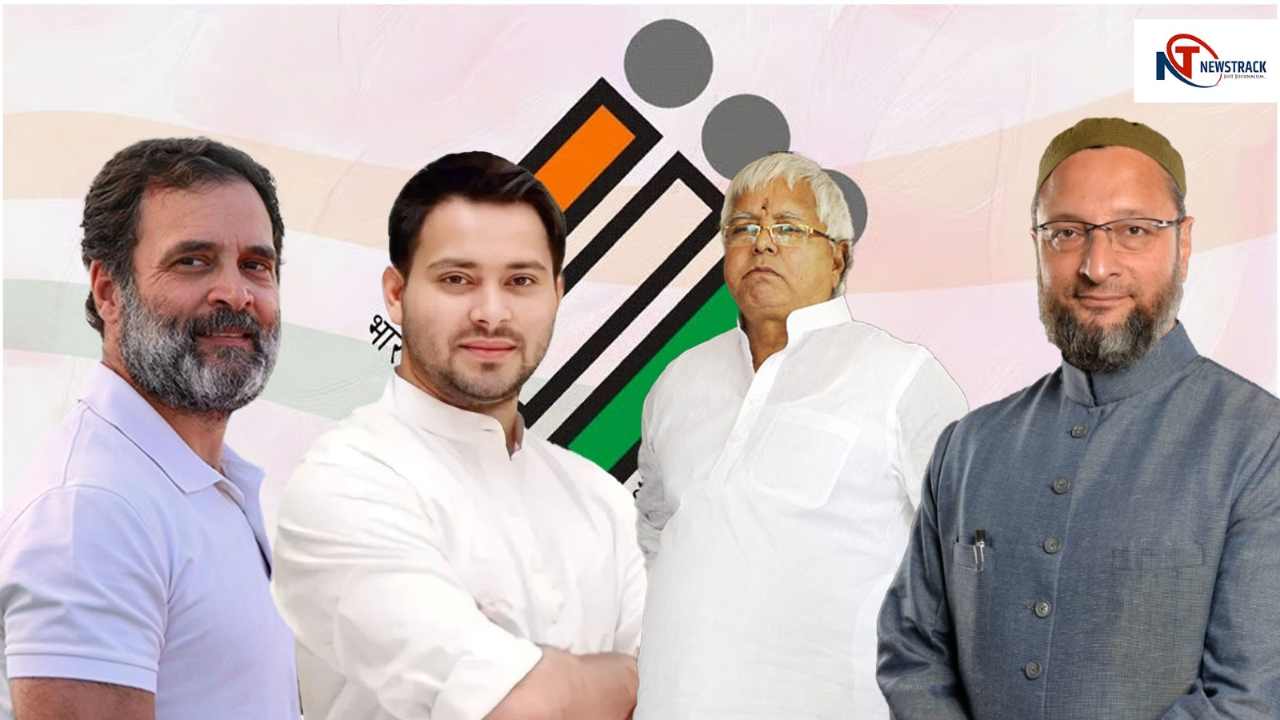Owaisi Bihar Politics: When a leader repeatedly shouts patriotic slogans, the enemy takes the country to the road from Parliament to the road on terror attacks and yet the question is not able to be a character in the eyes of the secular parties, then it is bound to raise the question that what is the shadow of politics which is still kept out of Bihar’s main stream? The 2025 assembly elections have been set up and Bihar’s politics is once again wandering in the streets of alliance. The Rashtriya Janata Dal and the Congress -led Grand Alliance has been sitting afresh to strengthen the possibilities of victory, but the name that has been rejected once again in this whole exercise is AIMIM chief Asaduddin Owaisi.
Owaisi’s restlessness and grand alliance rude
If sources are to be believed, this time too, Owaisi had sent the talk of an alliance with RJD and Congress through his representatives. Owaisi’s attempt was to give him a place in the grand alliance in view of his impressive presence in Seemanchal. But RJD and Congress made it clear that they would not stand with AIMIM. This is the same story that was also repeated in 2020, and as a result, the grand alliance went to the threshold of the majority. In 2020, AIMIM won five seats in Seemanchal and showed that Owaisi is not just a speechman, but a leader of the land. Despite this, once again he is unable to see the door open despite knocking on the alliance’s frame.
‘Secular’ test of Owaisi’s patriotism
The way Owaisi has introduced himself in the last months, it has brought a big change in his image. He openly criticized Pakistan during Operation Sindoor. After the Pahalgam terror attack, his rhetoric even forced him to say that he was the same Owaisi who was once accused of being Pakistan. This was the first time the central government included Owaisi in the all -party delegation and sent them on a visit to Muslim -majority countries. Owaisi put India’s side firmly in Kuwait, Saudi Arabia, Bahrain and Algeria. His patriotism was probably appreciated for the first time in both power and the opposition. But when Prime Minister Modi kept a banquet in honor of this delegation, Owaisi did not attend it. He objected to his political differences, but also gave a message of standing with the government in the national interest.
Still why not broken the image of ‘BJP’s B-Team’?
The Grand Alliance and especially RJD and Congress have been calling AIMIM as ‘B-Tim’ of BJP. They believe that Owaisi’s party in Seemanchal benefits the NDA by dividing Muslim votes. The same allegation was also made in 2020, when the NDA gained by just 12,768 votes and the grand alliance remained out of power. However, it is equally true that if AIMIM was taken along, Tejashwi Yadav would have become the Chief Minister in 2020. But in politics, the perception of ‘perception’ and Owaisi is still under suspicion.
Court gave relief, politics made distance
Recently, the Supreme Court refused to cancel the party’s registration, dismissing allegations of doing religion -based politics against AIMIM. This decision strengthens Owaisi’s political validity. But in the eyes of secular parties, his party still comes in the category of ‘Religious Party’. Owaisi’s party opposes many policies of the Center that also performs the Grand Alliance, CAA, NRC, triple talaq, waqf property and now the SIR dispute of Bihar. Despite this, Owaisi is not getting a place. In such a situation, the question arises again and again whether the patriotism in politics is not enough to change the identity?
Strategy or political risk to keep AIMIM out?
The Grand Alliance is also taking the risk of keeping AIMIM out this time. But who will get the benefit of this? If AIMIM will fight firmly in Seemanchal by creating a separate front, then the disadvantage may occur to Tejashwi once again. And if the NDA benefits, then the question will remain, “Are you really stopping the BJP by making Owaisi untouchable?”
Owaisi’s destination still away
Owaisi’s biggest difficulty is that as soon as the name of his party comes, secular parties start to smell of religion based politics. Although his working style has now changed, he does not only talk about Muslim issues, but also about democracy, constitution and national security. Nevertheless, AIMIM is still a sideline in Bihar. Owaisi’s arguments are sharp, but political doors are still closed. So the question is, how long will Owaisi, who has passed the examination of patriotism, will stand on the doorpost of secular politics? And will Tejashwi Yadav repeat history again or will this time change history by giving Owaisi a chance?










